Police raids and edgy press conferences, is it the noughties all over again?
Investigators searching the houses and offices of Bahrain Victorious riders and staff bring back uncomfortable memories.
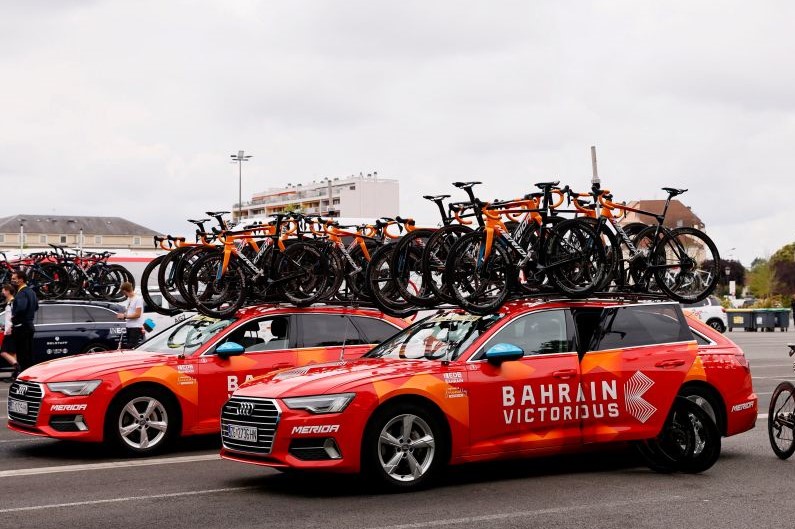

When news broke of more Police raids on the homes of Bahrain Victorious riders it took me back, and not to a good place. In Strasbourg, 2006, I was standing watching the Tour de France team presentation as the riders were ferried to the stage in boats, having travelled along the French city’s canals in front of the crowds. But celebrations were muted, and everyone was tense.
Throughout the evening the sky turned ever darker; the storm clouds were gathering, both literally and figuratively. It felt like less a celebration of the riders and more like a walk, or float, of shame.
The start of that year’s Tour de France was mired in controversy, borne out of Operacion Puerto, the Madrid based doping ring centred around the offices of Dr Eufemiano Fuentes. Primarily the Police investigation was based on Liberty Seguros boss Manolo Saiz, but it quickly spread as bags of blood that were seized turned out to have code names for riders from across the peloton.
That year, as the 2006 Tour loomed into view, things gathered pace and before the race had even started riders were taken out of team line ups as they were named in the investigation. The two pre race favourites Jan Ullrich and Ivan Basso included.
Alexandre Vinokourov's Astana-Würth team had to withdraw on mass as the expulsion of four of their team left them without the pre-required six riders.
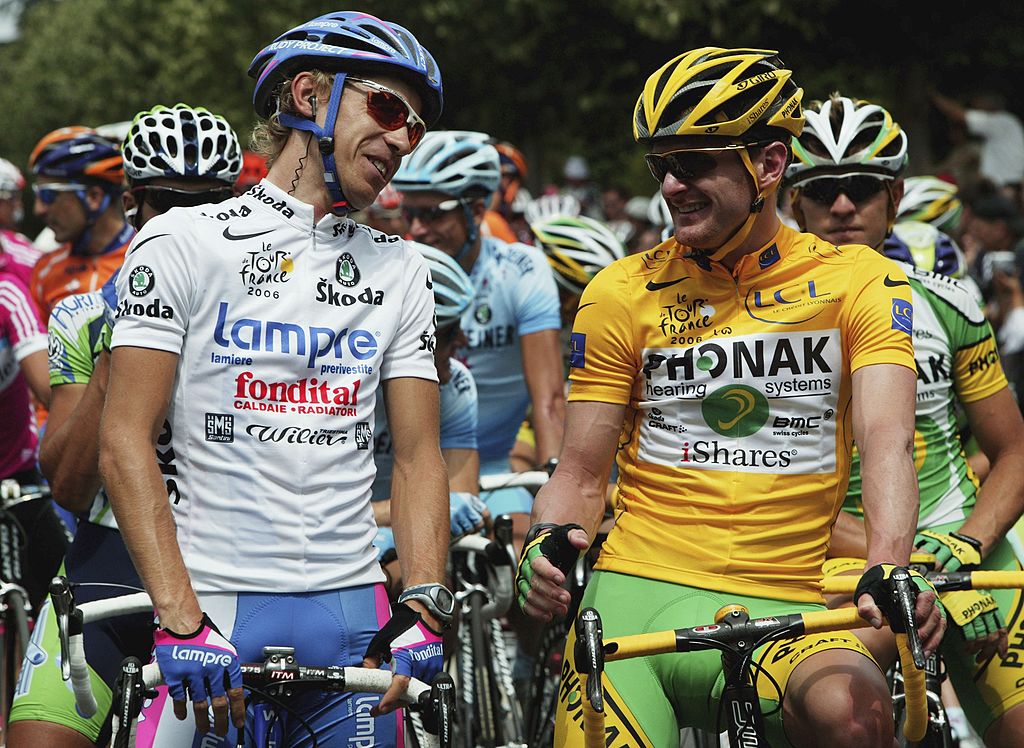
The race limped on to Paris but throughout there was an uncomfortable feeling around proceedings. Questions in press conferences were either brushed over, ignored or angrily rebutted. I'm sure the phrase 'move on' was used on several occasions. Any level of interrogation can't be sustained by the whole press corp over three weeks.
The impetus recedes and of course there's a race to report on. Then, just when it felt like everyone had 'moved on' from that disastrous start the Floyd Landis revelations dropped. The American was stripped of his race win and so started a chain of events that, years later, would bring down his former team mate Lance Armstrong.
Get The Leadout Newsletter
The latest race content, interviews, features, reviews and expert buying guides, direct to your inbox!
The following year more was to come. After a successful start in London the race made it to Pau without major incident. Then all hell broke loose. Vinokourov tested positive for an homologous blood transfusion and Astana were asked to leave the race by organisers ASO.
As word got around the press had gathered in the hotel’s carpark, waiting for what we didn’t really know. The riders had gone, and the vehicles were left abandoned in the car park. Then came the knock out punch. Rabobank’s Michael Rasmussen - the yellow jersey wearer - had been suspended by his team and was off the race with just days to go.
Suspicions had slowly been growing around the Dane, first as a story emerged from an American rider who said Rasmussen has asked him to deliver doping products for them, then as it emerged he had lied about his whereabouts earlier in the year to throw out of competition testers off the scent. He had claimed he was in Mexico, where his wife was from, only for an Italian TV pundit to casually mention he saw him training in Italy.
The Tour, the whole sport in fact, was seemingly a complete mess.
But looking back at that period it now very much feels like the dying days of a doped generation. The world anti doping agency (WADA) formed in 2000 was getting its act together and an improved testing regime, biological passports and better intelligence gathering meant major steps were being taken in the fight against doping.
Since then there have of course been more transgressions. Armstrong made a semi-successful comeback before his empire finally crumbled and Alberto Contador tested positive for Clenbuterol and was stripped of his 2010 Tour victory. But the big raids and police investigations have felt like a thing of the past. Until now.
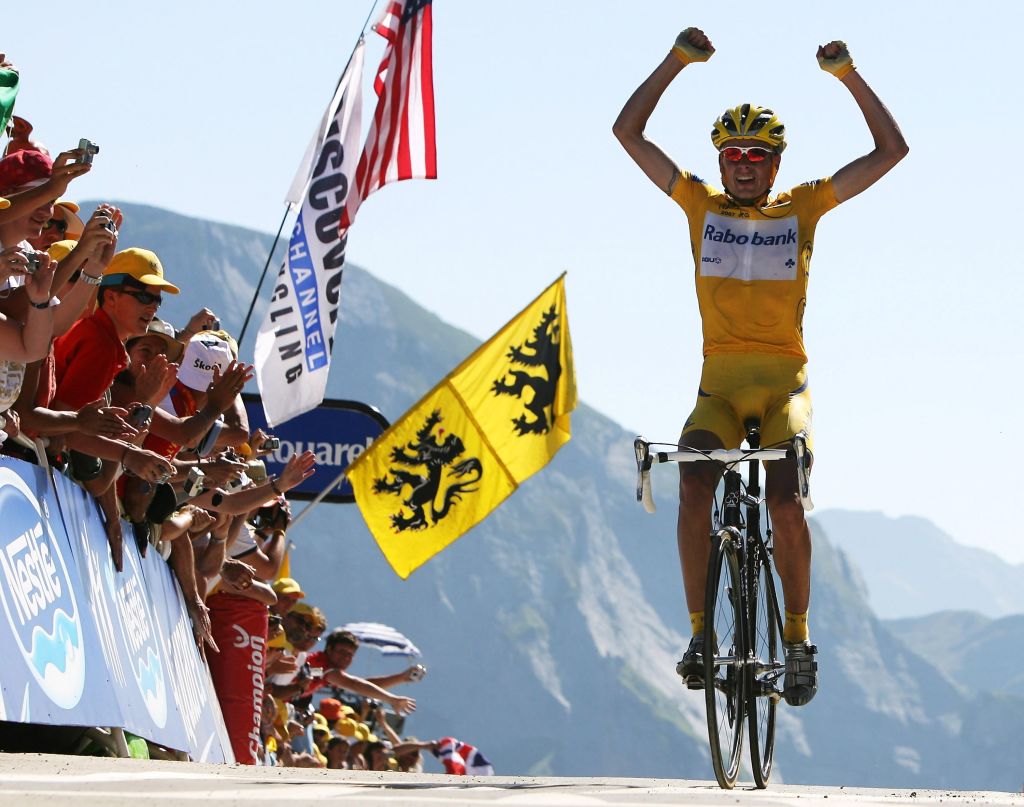
Bahrain Victorious first got the unsuspecting knock on the door at last year’s race, again the city of Pau playing host to a police raid. The action was prompted by concerns raised from within the peloton as the team continued to log a strong set of results through the 2021 season.
33-year-old Damiano Caruso had finished second at the Giro, the virtually unknown Mark Padun, now at EF Education-Easy Post, had won back to back mountain stages at the Criterium du Dauphine, Jack Haig was riding high in the Tour’s GC while Matej Mohorič was making mince meat of his breakaway companions on the Tour’s longest stages.
The team said they complied with all requests. “The investigation involved a search of riders’ rooms as part of the process. Despite being unaware of the investigation reasons, the team was also requested to provide all training files which were compiled and presented to the officers as requested,” technical director of the team, Vladimir Miholjevič said.
Seemingly nothing came of those raids and no riders were sanctioned. The team’s success continued in 2022 and seemingly so have the suspicions of the French prosecutors who have returned for another crack at the nut.
The timing of the raids is interesting. Whether or not by design, coming on the eve of the race gains maximum publicity but also hints that they haven’t learnt from the past and seen how doping practices have changed.
Long gone are the days when team staff would ferry round products for their whole team - as Festina famously did before being caught out in 1998 as their soigneur drove across international borders to the start in Ireland with a boot so full of drugs that it would have made a pharmacists eyes water.
Doping moved away from the races after 1998, as riders went to "prepare" on their own, with a doctor or coach. Storing products at home was also too risky as riders, the well funded, well organised ones at least, would use their travel as a cover. Diverting to a random city on their way home from a training camp or race earlier in the season to meet with their Dr for their "treatment". By the time they got to the bigger races there was nothing to find.
This was how the doping operations of Fuentes worked. As did those of Dr Mark Schmidt who was at the centre of the Operation Aderlass based in Efurt, Germany. Operation Aderlass mainly snared cross country skiers but Dr Schmidt had previously been the team doctor at both Gerolstiener and Milram.
The investigators have seized medicines in their searches, along with electrical equipment. What those medicines are may or may not be revealed in the coming days or weeks. But the timing of all of this makes me feel like someone hasn't learnt the lessons of the past. The question is; is it the investigators, or is it the riders?
Then there is of course a third option. The one that ASO and the fans will be hoping for. That the medicines are everyday products that you'd find in any house, and that the sport really has moved on from the noughties.

Thank you for reading 20 articles this month* Join now for unlimited access
Enjoy your first month for just £1 / $1 / €1
*Read 5 free articles per month without a subscription

Join now for unlimited access
Try first month for just £1 / $1 / €1

Editor of Cycling Weekly magazine, Simon has been working at the title since 2001. He fell in love with cycling 1989 when watching the Tour de France on Channel 4, started racing in 1995 and in 2000 he spent one season racing in Belgium. During his time at CW (and Cycle Sport magazine) he has written product reviews, fitness features, pro interviews, race coverage and news. He has covered the Tour de France more times than he can remember along with two Olympic Games and many other international and UK domestic races. He became the 130-year-old magazine's 13th editor in 2015.
-
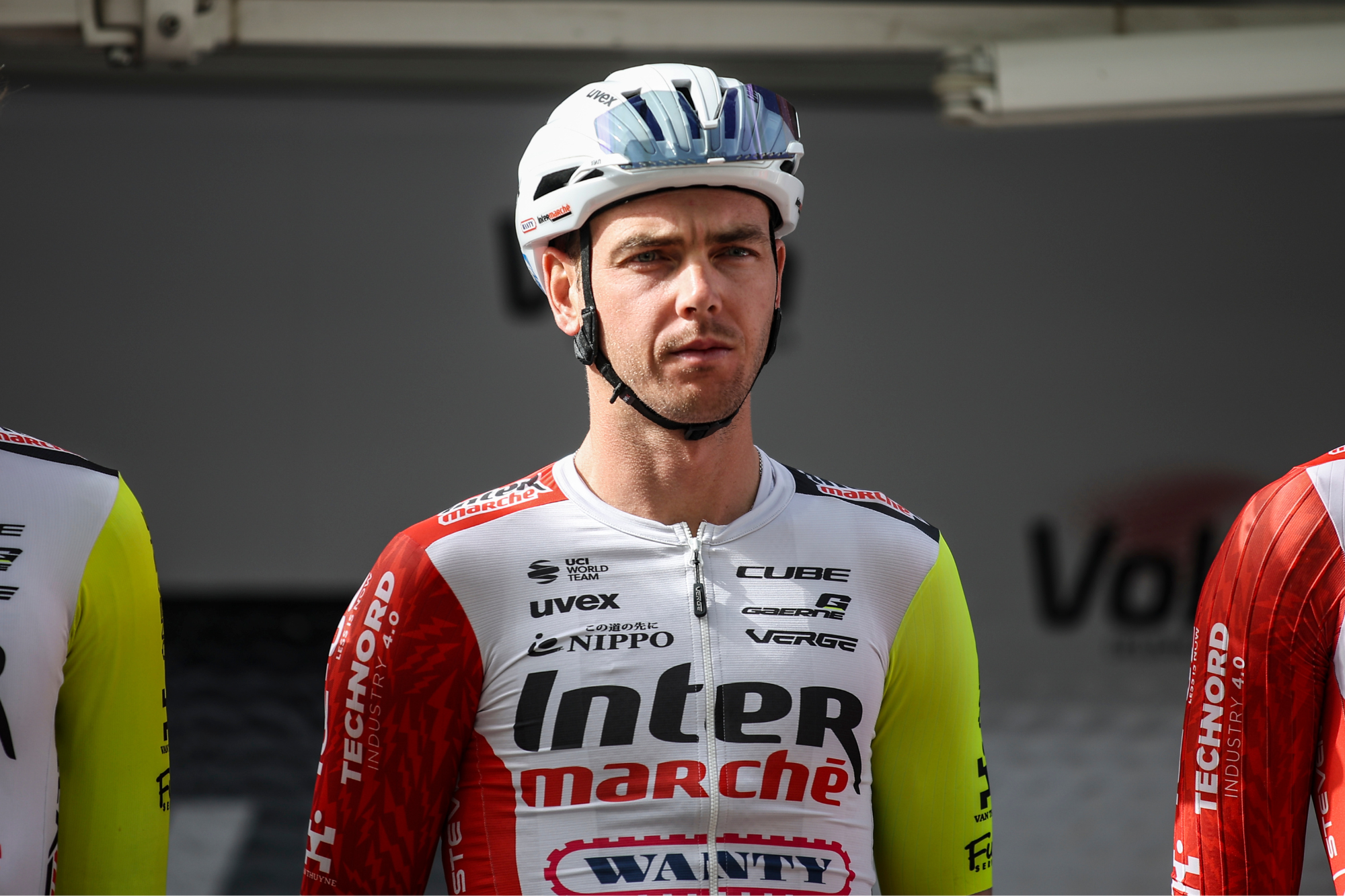 Giro d'Italia rider almost wiped out by goat: 'Albania's great – just watch out for the goats!'
Giro d'Italia rider almost wiped out by goat: 'Albania's great – just watch out for the goats!'Dion Smith of Intermarché-Wanty confirmed it was the first time that a goat had tried to knock him off his bike.
-
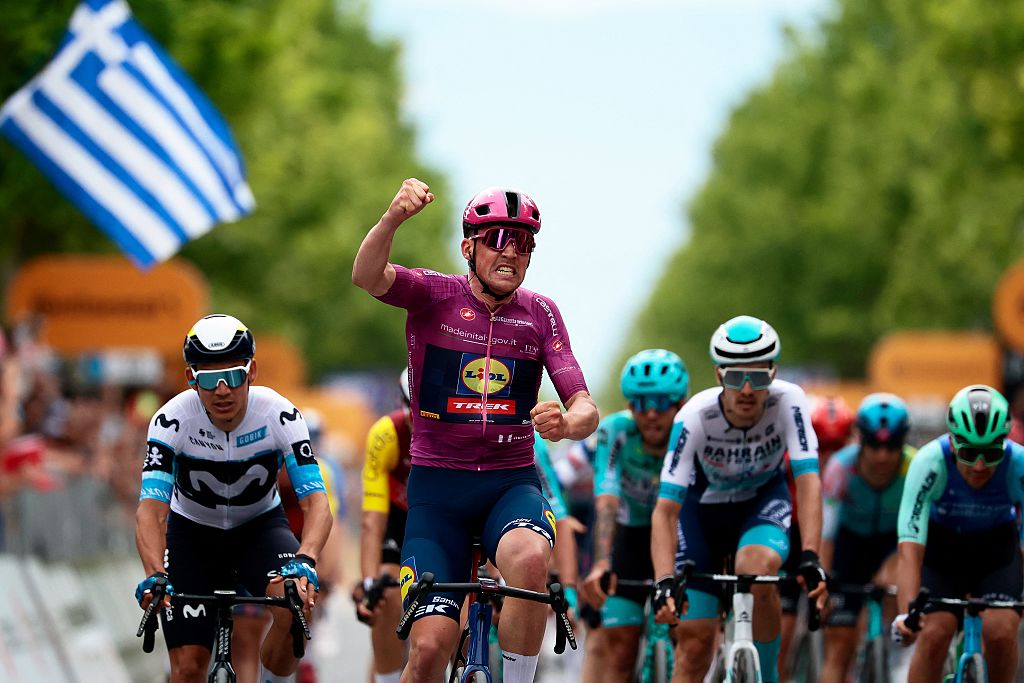 Mads Pedersen reclaims pink jersey after second Giro d'Italia sprint win on stage 3
Mads Pedersen reclaims pink jersey after second Giro d'Italia sprint win on stage 3Former world champion edges out Corbin Strong, with Orluis Aular third